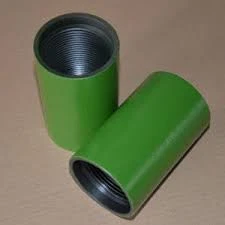- Afrikaans
- Albanian
- Amharic
- Arabic
- Armenian
- Azerbaijani
- Basque
- Belarusian
- Bengali
- Bosnian
- Bulgarian
- Catalan
- Cebuano
- Corsican
- Croatian
- Czech
- Danish
- Dutch
- English
- Esperanto
- Estonian
- Finnish
- French
- Frisian
- Galician
- Georgian
- German
- Greek
- Gujarati
- Haitian Creole
- hausa
- hawaiian
- Hebrew
- Hindi
- Miao
- Hungarian
- Icelandic
- igbo
- Indonesian
- irish
- Italian
- Japanese
- Javanese
- Kannada
- kazakh
- Khmer
- Rwandese
- Korean
- Kurdish
- Kyrgyz
- Lao
- Latin
- Latvian
- Lithuanian
- Luxembourgish
- Macedonian
- Malgashi
- Malay
- Malayalam
- Maltese
- Maori
- Marathi
- Mongolian
- Myanmar
- Nepali
- Norwegian
- Norwegian
- Occitan
- Pashto
- Persian
- Polish
- Portuguese
- Punjabi
- Romanian
- Russian
- Samoan
- Scottish Gaelic
- Serbian
- Sesotho
- Shona
- Sindhi
- Sinhala
- Slovak
- Slovenian
- Somali
- Spanish
- Sundanese
- Swahili
- Swedish
- Tagalog
- Tajik
- Tamil
- Tatar
- Telugu
- Thai
- Turkish
- Turkmen
- Ukrainian
- Urdu
- Uighur
- Uzbek
- Vietnamese
- Welsh
- Bantu
- Yiddish
- Yoruba
- Zulu
Stainless Steel Pipe Couplings for Efficient Piping Connections and Seamless Integration
The Versatile World of Stainless Steel Pipe Couplings
Stainless steel pipe couplings are essential components in various plumbing and pipefitting applications. They serve to connect two pipes, allowing for the seamless transfer of liquids and gases. The durability, corrosion resistance, and aesthetic appeal of stainless steel make it a preferred material in multiple industries, from construction to food processing. In this article, we will explore the significance, types, benefits, and applications of stainless steel pipe couplings.
Importance of Pipe Couplings
Pipe couplings are critical for the integrity of piping systems. They facilitate the connection of different sections of pipe, enabling the system to function efficiently and safely. Properly installed couplings prevent leaks that could lead to product loss, safety hazards, and costly repairs. As industries grow increasingly focused on sustainability and efficiency, choosing the right materials for pipe fittings becomes paramount. Stainless steel pipe couplings stand out in this regard due to their robust nature.
Types of Stainless Steel Pipe Couplings
There are several types of stainless steel couplings, each designed for specific applications
1. Slip Couplings These are straightforward couplings that allow for slight adjustments in alignment and accommodate pipe expansion and contraction. They are especially useful in applications where pipes might shift or settle.
2. Compression Couplings This type consists of two halves that compress the pipe ends together once they are fitted. Compression couplings offer a quick installation process and work well for repair purposes.
3. Welded Couplings As the name suggests, these are welded to the pipes, providing a strong and permanent connection. Welded couplings are commonly used in high-pressure applications where maintaining a tight seal is critical.
4. Socket Weld Couplings This coupling allows the pipe to be inserted into a socket, which is then welded to create a secure connection. This type is largely employed in high-pressure and high-temperature environments.
5. Threaded Couplings These couplings use male and female threads to join pipes. They provide versatility and are easy to install and uninstall, making them suitable for temporary setups.
Benefits of Stainless Steel Pipe Couplings
1. Corrosion Resistance Stainless steel is inherently resistant to rust and corrosion, making it ideal for applications involving water, chemicals, and harsh environments. This durability extends the lifespan of the piping system.
stainless pipe coupling

2. High Strength Stainless steel's high tensile strength ensures that the couplings can withstand significant pressure and temperature variations, making them suitable for both residential and industrial use.
3. Aesthetic Appeal Stainless steel offers a polished, modern look that is often desirable in architectural applications. Its aesthetic properties make it an excellent choice for visible piping systems in commercial settings.
4. Ease of Maintenance Stainless steel couplings require minimal maintenance due to their durability. Cleaning is simple, as they do not accumulate rust or other deposits, reducing the need for frequent replacements.
5. Environmental Sustainability Stainless steel is recyclable, making it a more sustainable option in the long run. Choosing stainless steel components helps to reduce environmental impact while ensuring longevity.
Applications of Stainless Steel Pipe Couplings
Stainless steel pipe couplings are utilized across various sectors, including
- Construction In residential and commercial buildings, stainless steel couplings connect plumbing and HVAC systems, ensuring reliable service.
- Food and Beverage The food processing industry often relies on stainless steel piping due to its sanitary properties, where couplings must maintain hygiene and prevent contamination.
- Oil and Gas In this high-pressure industry, robust couplings are crucial for transporting materials safely across various distances.
- Chemical Processing Given the corrosive nature of many chemicals, stainless steel couplings provide the necessary resistance to maintain the integrity of the system.
Conclusion
Stainless steel pipe couplings play a vital role in ensuring the efficiency and safety of piping systems across a range of industries. Their corrosion resistance, strength, and aesthetic appeal make them a favored choice for both temporary and permanent installations. As industries continue to evolve and seek sustainable solutions, the demand for high-quality materials like stainless steel will only increase. Investing in stainless steel couplings not only contributes to the longevity of systems but also promotes environmental responsibility, making them a wise choice for many applications.
-
Tubing Pup Joints: Essential Components for Oil and Gas OperationsNewsJul.10,2025
-
Pup Joints: Essential Components for Reliable Drilling OperationsNewsJul.10,2025
-
Pipe Couplings: Connecting Your World EfficientlyNewsJul.10,2025
-
Mastering Oilfield Operations with Quality Tubing and CasingNewsJul.10,2025
-
High-Quality Casing Couplings for Every NeedNewsJul.10,2025
-
Boost Your Drilling Efficiency with Premium Crossover Tools & Seating NipplesNewsJul.10,2025







